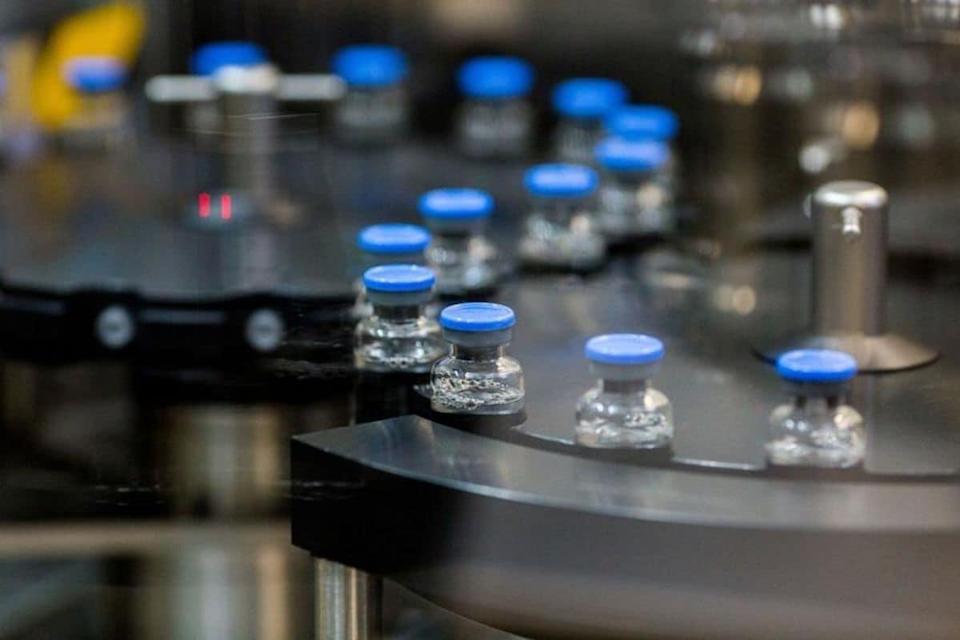Novartis announced Thursday it will join forces with fellow Swiss pharmaceutical giant Roche to produce tocilizumab, a drug being tested for its effectiveness against Covid-19-linked pneumonia.
It is the third time Novartis has made its production capacities available to a competitor during the coronavirus pandemic, as several laboratories strike unprecedented partnerships to fight the global crisis.
Novartis is already collaborating with BioNTech and CureVac in producing Covid-19 vaccines.
The new tocilizumab deal will see Roche's manufacturing expertise transferred to the Novartis Drug Substance Singapore production site during the second quarter of 2021.
-Novartis is fully committed to collaborating with Roche in offering our proven biologics production capabilities- said Steffen Lang, the firm's technical operations chief.
-As one of the world's largest producers of medicines, Novartis can mobilise its manufacturing capabilities on multiple fronts.-
Sold as Actemra or RoActemra depending on the market, tocilizumab is a treatment for rheumatoid arthritis which is also being tested in clinical trials investigating its safety and efficacy against Covid-19-associated pneumonia.
The injected treatment has suffered several setbacks in clinical trials.
However, a large British study published in February reported encouraging results, particularly in reducing the risk of death.
In January, Novartis announced an agreement with Pfizer-BioNTech to provide manufacturing capacity for its Covid-19 jabs.
In March, it then struck an agreement to manufacture the mRNA and bulk drug product for CureVac's Covid-19 candidate vaccine.
Faced with the desperate shortage of vaccine production capacity in dealing with the pandemic, unprecedented cooperation has been struck between laboratories.
Novartis did not join the race to produce a Covid-19 jab, being no longer involved in vaccines following a major reorganisation in 2015.
Its vaccines were sold to the British firm GlaxoSmithKline, with the exception of its influenza jabs which were sold off separately to the Australian laboratory CSL.
